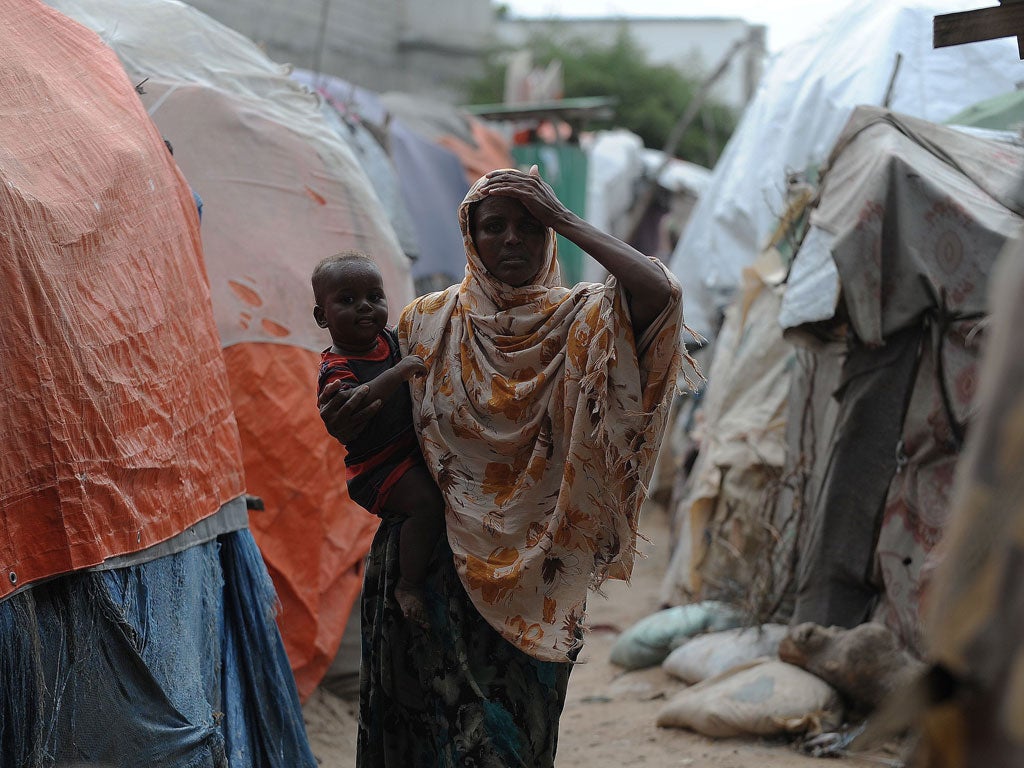Angel of Mogadishu who raised a hospital from the ruins of war

Reopening the San Martino hospital in the Somali capital, Mogadishu, has been a largely thankless task for Dr Aisha Omar Ahmed. Instead of earning a tidy living as a consultant obstetrician in Europe, the hospital director has been working mostly unpaid and in appalling conditions.
Since quitting her medical career in Rome to return home to a city and country at war, the 44-year-old has been threatened, beaten and shot at. So far she has chosen to stay.
"I was watching Somalia for 20 years in the headlines. I saw the [wounded] children brought to Italy for treatment. I was always thinking about this country," she says.
The San Martino is barely recognisable as a hospital. A cluster of wind-blown Italianate ruins overlooking the Indian Ocean near the old port, it has long since been overrun by squatters fleeing the destruction elsewhere in the capital. The wards and operating theatres, laundry and clinic have been variously shelled, occupied or looted. The new residents did not welcome the arrival three years ago of a young doctor with plans for restoring their adopted home.
In her small office dusted with crumbling plaster she sits behind a spartan desk and makes light of her circumstances: "As you can see I am very poor." There is only one ward with 30 beds. The rest of the complex is a camp for IDPs – internally displaced people – who have resisted eviction. The hospital's patients, many with gunshot wounds, have only Dr Ahmed and a handful of nurses to care for them.
Some of the squatters have day jobs as police or soldiers, she explains, so when rows break out she sometimes has to face down men with guns.
Dr Ahmed admits she has thought of giving up but insists that the San Martino must become a hospital again: "I am a Mogadishu person. I was born here. My mother was born in this hospital. This is our place."
Her father was minister of finance under the socialist dictator Siad Barre, the last time Somalia had a functioning government. He died during the civil war that broke out in 1991, when his regime collapsed. Today, most of her relatives live in London and think she is crazy to risk her life in such a dangerous city.
When she put her medical studies on hold to return to her home city for the first time in 2006, Mogadishu was under the control of the Islamic Courts Union (ICU), an Islamist alliance that drove out the warlords who had fought over the capital since the early 1990s. The suffering she witnessed stayed with her when she returned to Italy and after finishing her PhD in Rome she decided to go back.
Dr Ahmed returned as the fighting was reaching its peak in 2009. By then, the battle for the city was being waged between African Union peacekeepers protecting the UN-backed transitional government and al-Shabaab, an extremist offshoot from the ICU. The radical militia had won popular support when Ethiopia invaded in 2006, with US support, to topple the ICU. The Ethiopian occupation was fiercely resented in Somalia, radicalising what had been a moderate country.
The plight of her country's women has motivated her to continue her struggle. The destruction of Somalia's health infrastructure and the widespread practice of female genital mutilation have left the country with the highest maternal mortality rate in the world. In rural areas all girls are cut between the ages of three and seven. Today a dozen young women are sitting in a makeshift classroom near her office – the first graduates of a scheme aimed at improving women's conditions. They have been schooled in basic hygiene, lectured on the ills of genital mutilation and dispatched with some sterile gloves and the offer of $10 per referral to the capital – paid for by a local mobile phone operator.
Dr Ahmed tells them they are expected to "go back to make a difference in their village". The San Martino's director is a tough woman to argue with.
Join our commenting forum
Join thought-provoking conversations, follow other Independent readers and see their replies
Comments
Bookmark popover
Removed from bookmarks